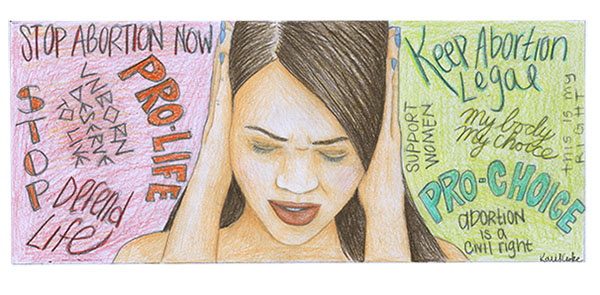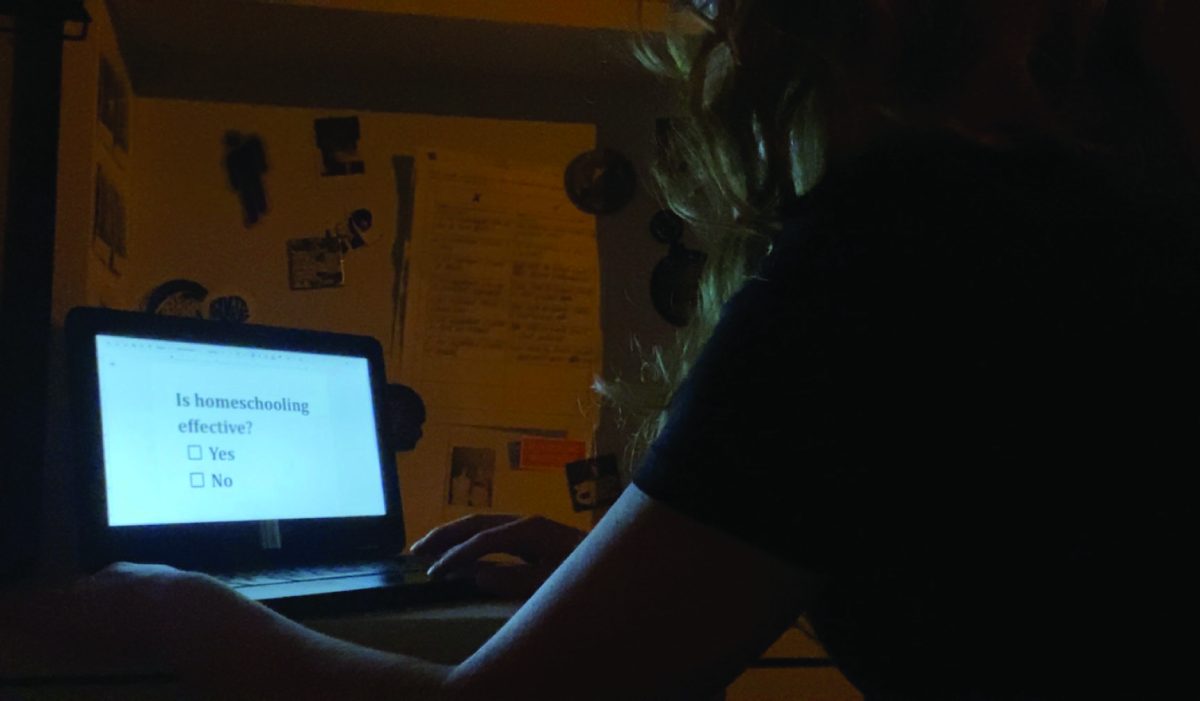Southeast students, as well as many political and public figures, respond to recent ‘heartbeat bills’

Art found in The Oracle from Glenbrook South High School.
May 23, 2019
On Jan. 22, 1973, legal case Roe v. Wade was in court to decide whether or not abortions were constitutional. Norma McCorvey, who went by Jane Roe to protect her identity, initially believed mothers should be able to abort the fetus at any time during the pregnancy if that is what she wishes. McCorvey sought to get an abortion, but was denied. She took the case to court and it took three years to get to the U.S. Supreme Court. The Supreme Court disagreed, but instead ruled that women could abort the child at any time until the end of the first trimester. The exception to this is if the pregnancy is harming the mother or if the fetus may be harmed in any way.
Now, 46 years later, our country is faced with a similar controversy. In May of 2019, Alabama passed a bill that put a ban on abortions. The two exceptions for this bill are: if the pregnancy is harming the mother and if the fetus will live when it is born. The bill from Alabama also states that if doctors perform abortions, they will have to serve a 99-year prison sentence. Missouri passed a new law that bans abortions after eight weeks of pregnancy. These new bans are labeled as “heartbeat bills.” Arkansas, Georgia, Kentucky, Mississippi, Ohio and Utah have also placed similar bans on abortions. New York and Vermont are on the other side of the spectrum and have placed protections on abortion rights.
In Sept. 2018, the United States conducted a survey concerning legal abortions. It was found that 60 percent of women and 57 percent of men agree with legal abortions.
These bans have struck a chord with many Southeast students as well as political figures. On May 15, Pat Robertson, a Republican televangelist, said, “I think Alabama has gone too far. They’ve passed a law that would give a 99-year prison sentence to people who could commit abortion. There’s no exception for rape or incest. It’s an extreme law, and they want to challenge Roe v. Wade, but my humble view is that this is not the case we want to bring to the Supreme Court because I think this one will lose.”
This segment given by Robertson was covered by multiple news sources and stuck with many people, since many Republicans agree with the heartbeat bills.
Speaker of the House Nancy Pelosi also made a statement about the recent bans on her government website, saying, “Every woman has the right to basic reproductive healthcare – yet Republicans have trampled over a long-standing constitutional right in their haste to push a radical anti-woman agenda.”
President Donald Trump also responded to the recent bills. On May 19, he tweeted, “As most people know, and for those who would like to know, I am strongly pro-life, with three exceptions – rape, incest and protecting the life of the mother.”
Another major politician that commented on the heartbeat bills is Nebraska’s governor, Pete Ricketts. On May 15, 2019, Ricketts wrote a tweet saying, “Nebraska is a #prolife state, and we support the brave pro-life champions and their work in Alabama and Georgia.”
The Lincoln Journal Star wrote an article published May 19, 2019 that included interviews with Sen. Joni Albrecht. Albrecht reported that she had been asked by senators John Arch and Ben Hansen if they could suggest a new “fetal heartbeat” bill in the next session. Albrecht agreed. The supposed bill will say women cannot get an abortion after a heartbeat is heard, or six to eight weeks into the pregnancy, unless it is in the woman’s best-interest to get an abortion. It is not known whether or not this bill will be suggested, since the senators will wait until the next session.
It is inevitable that politicians will continue to react to the heartbeat bills, but how do our school’s students react to them? All around social media, there are multiple posts talking about what being “pro-choice” really means and why some believe the government shouldn’t be in control of women’s bodies.
“[Being pro-choice] means that every woman gets the right to choose what is best for her,” Sadie Prenda (11) said. Prenda is an open feminist and fights for what she believes in. The bans have affected her in a very personal way.
“I was really scared because I never really thought that states could just make laws like that. It all just became really real that my rights as a woman were being threatened,” Prenda said.
Cadan Kontos (9) also has opinions on how the bans have affected himself and the country. “When I first heard about the ban, I was really shocked because I thought we were starting to head in the right direction as a country, and it just feels like a big step back,” Kontos said.
Right now, there is no given information about what will happen with the heartbeat bills, but states are passing the bills quickly and may soon start to challenge the Roe v. Wade decision.








